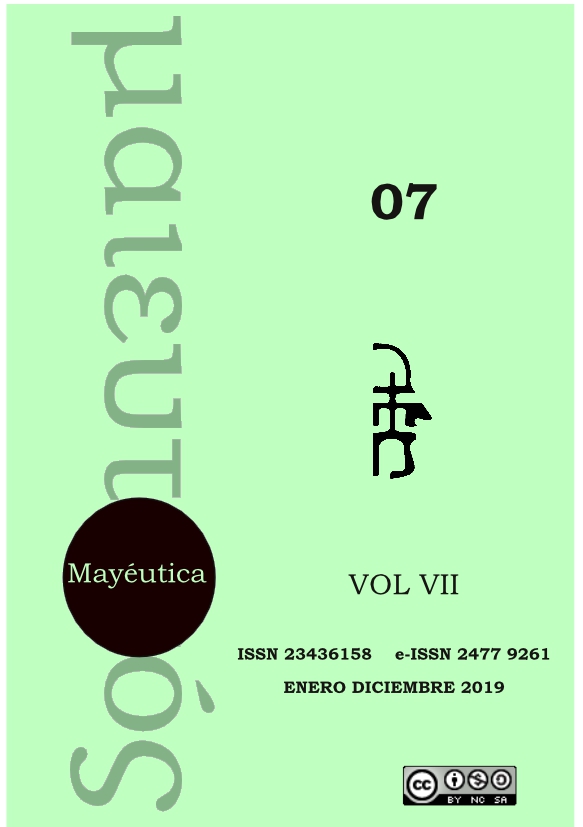Agency, productivity and sustainability: cocoa production experience in the hamlet of El Tesoro on Barinas state 2017-2018
Keywords:
Collective Agency, Agroecological Practices, Sustainability, Human Development, CocoaAbstract
The cultivation of cocoa refers to a vast trajectory in the agriculture of Venezuela, from which numerous social actors have promoted various actions of scientific interest, hence, this research sought to approach, understand the social processes generated by the agroecological and sustainable experience in the cultivation of cocoa in the hamlet of El Tesoro in Barinas state, valuing the dynamics among the producers as expressions of collective agency and as a coadjutant element in the preservation of the productivity and sustainability of the area. Included in the theoretical line of this research are statements by Hernández and Escala (2011), Altieri and Nicholls, (2012) and discussions outlined in the Human Development Report of 1996 of United Nations Development Programme. This is a qualitative research, with the techniques of ethnographic interviews, indepth interviews and observations. The process of interpretation and analysis of the information was developed under a system of categorization that allowed the construction of comprehensive conclusions of the social reality studied. Among the findings, there are, the promotion of agency processes through the cocoa activity, characterized by the creation of spaces for improvement of the social, economic and environmental area of the parties involved. Cocoa emerges as a tool for social transformation that generates opportunities for the achievement of individual and collective wellbeing, making it a resource highly valued by producers in the area.
Downloads
References
CALVENTE, Arturo. 2007. “El concepto moderno de sustentabilidad”. [Documento en Línea]. Disponible: http://www.sustentabilidad.uai.edu.ar/pdf/sde/UAIS SDS100002%20%20Sustentabilidad.pdf. [Consulta: 26 de octubre de 2016]
CHIAPPE, Marta. 2001. “Dimensiones sociales de la agricultura sustentable”. En Ediciones Científicas Americanas. Disponible: http://dedicaciontotal.udelar.edu.uy/adjuntos/produ ccion/965_academicas__academicaarchivo.pdf . [Consulta: 27 de marzo de 2017]
CONSTITUCIÓN DE LA REPÚBLICA BOLIVARIANA DE VENEZUELA. 1999. Caracas: Gaceta Oficial N° 5453 Extraordinaria.
DENZIN, Norman y LINCOLN, Yvonna. 1994. Entering the Field of Qualitative Research Handbook of Qualitative Research. California: Sage.
FELSINGER, Erika. RUNZA, Pablo Manuel. 2002. “Productividad”. [Documento en Línea]. Disponible: https://www.ucema.edu.ar/posgradodownload/tesinas2002/Felsinger_MADE.pdf. [Consulta: 27 de octubre de 2016]
GALEANO, María Eumelia. 2004. Diseño de proyectos de investigación cualitativa. Medellín, Colombia: Universidad Eafit
GUERRA, Alexis y GIMÉNEZ Carlos (eds). 2014. Desarrollo Humano Integral Compromiso de Todos. Barquisimeto, Venezuela: Cátedra Libre BCV.UCLA.
GUBER, Susana. 2001. La Etnografía Método, Campo y Reflexividad. Buenos Aires: Grupo Editorial Norma.
PROGRAMA DE DESCENTRALIZACIÓN Y GOBERNABILIDAD LOCAL. USAID. 2008. "Guía para promover el desarrollo económico local". [Documento en Línea]. Disponible: pdf.usaid.gov/pdf_docs/Pnadq186.pdf. [Consulta: 27 de octubre de 2016]
HERNÁNDEZ, Ángel. y ESCALA, Zouleyma. 2011. Enfoques de la Capacidad y el Desarrollo Humano. Origen, Evolución y Aplicaciones. Caracas, Venezuela: PNUDTotal.
PROGRAMA DE LAS NACIONES UNIDAS PARA EL DESARROLLO (PNUD). 2015. “Informe sobre Desarrollo Humano 2015, Trabajo al servicio del Desarrollo Humano”, Disponible: http://www.undp.org/content/undp/es/home/library page/hdr/2015humandevelopmentreport.html. [Consulta: 27 de octubre de 2016]
PROGRAMA DE LAS NACIONES UNIDAS PARA EL DESARROLLO (PNUD) .2011. “Informe sobre Desarrollo Humano Sostenibilidad y Equidad: Un mejor futuro para todos” Disponible:http://hdr.undp.org/es/content/informesobredesarrollohumano2011 [Consulta: 27 de marzo de 2017]
ROMERO CHAVES, Cristina, 2005. “La categorización un aspecto crucial en la investigación cualitativa”. En Revista de Investigaciones CESMAG. Vol 11 No. 11/ 113118.
STRAUSS, Anselm. CORBIN, Juliet. 2002. Bases de la investigación cualitativa. Técnicas y procedimientos para desarrollar la teoría fundamentada. Medellín, Colombia: Editorial Universidad de Antioquia.
VALLES, Manuel. 1997. Técnicas cualitativas de investigación social. Reflexión metodológica y práctica profesional. Madrid: Síntesis
Published
How to Cite
Issue
Section





